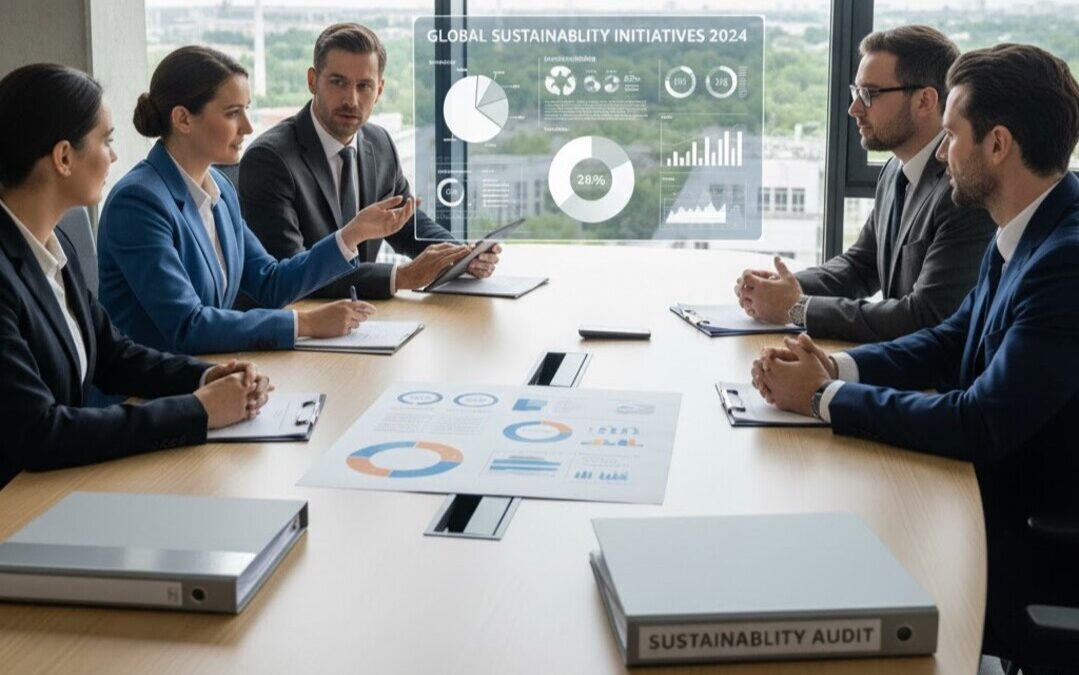KPMG Says 61% of CEOs on Track for Net-Zero by 2030 Amid ESG Push
Global CEOs are boosting confidence in climate goals as AI and strong ESG strategy drive sustainable business growth.
Global corporate leaders are growing more confident about meeting their climate ambitions. According to the 11th edition of the KPMG 2025 CEO Outlook, 61 percent of surveyed CEOs say they are on track to hit their net-zero targets by 2030, up from 51 percent a year ago.
“Despite economic and geopolitical uncertainty, CEOs are finding new confidence in their ability to deliver on sustainability goals,” said Bill Thomas, KPMG International’s global chairman and CEO. “Technology, especially AI, is helping leaders make faster, smarter, and more transparent decisions.”
Despite political and economic headwinds, 79 percent of CEOs remain optimistic about their companies’ growth prospects. Many have already adjusted their business strategies, with 72 percent saying they revised plans to match a shifting economic landscape.
Artificial intelligence is now central to their vision. About 71 percent of CEOs say they are investing in AI to strengthen resilience and drive growth. The report further states that talent retention and upskilling are critical to delivering those goals.
ESG Gains Traction, but Gaps Persist
Confidence in climate progress has risen sharply. KPMG says the ten-point increase signals “rising confidence in meeting climate targets.” Yet major obstacles remain.
The biggest challenge, cited by 25 percent of respondents, is the complexity of decarbonizing supply chains. Another 21 percent mention a shortage of skills and expertise, while only 11 percent cite cost as the main barrier.
AI is playing an increasingly important role in climate efforts. Seventy-nine percent of CEOs say they use AI to improve sustainability data and reporting accuracy. Nearly 78 percent use it to help cut emissions and boost energy efficiency.
Still, fewer than one in three CEOs have embedded sustainability into capital-expenditure decisions. Only 29 percent say climate considerations shape major spending plans. Yet 65 percent claim sustainability is fully integrated into their overall business model and viewed as critical to long-term success.
“These findings show how quickly expectations have evolved,” said Jane Lawrie, KPMG International’s global head of corporate affairs. “An ESG strategy is no longer optional—it’s part of how businesses compete for customers, capital, and talent.”
Risks and Readiness
As AI becomes more entrenched, new challenges are emerging. Three-quarters of CEOs say their companies have strong governance frameworks to manage AI integration. However, 59 percent highlight ethical risks, 52 percent cite data readiness issues, and half point to insufficient regulation.
Talent is another area of concern. About 77 percent of leaders believe workforce readiness for AI will determine business success in the next three years. Seventy percent warn that competition for AI talent could limit progress.
This mix of optimism and caution reflects a maturing approach. CEOs know the potential of AI and sustainability, but they also recognize the execution risks tied to technology, regulation, and human capital. Strengthening their ESG strategy is therefore becoming a priority to balance innovation with accountability.
What It Means for ESG Stakeholders
For ESG investors, policymakers, and business leaders, KPMG’s findings reveal a shift from promises to performance.
The growing confidence in net-zero delivery suggests that companies are either advancing faster or recalibrating targets to more achievable levels. Still, the limited integration of climate goals into capital spending signals that many firms have yet to align budgets with intent.
AI’s expanding role in sustainability is another key takeaway. As more firms deploy AI to enhance data accuracy and emissions tracking, demand for ESG analytics, data platforms, and advisory services is expected to rise.
The report also points out that human-capital risk remains central to the sustainability story. Skill shortages and governance gaps could undermine progress even as companies invest in cleaner operations. For many, the toughest hurdle will be decarbonizing global supply chains, an area now under growing scrutiny as Scope 3 reporting becomes standard.
Finally, the uneven adoption of sustainability metrics in financial decisions shows that “commitment” does not always translate into “capital.” ESG-minded investors should look beyond pledges and examine whether spending priorities align with a company’s ESG strategy and climate targets.
Outlook
The KPMG 2025 CEO Outlook paints a picture of cautious optimism. Corporate leaders are increasingly confident they can meet net-zero targets by 2030, and many view AI as an enabler of both growth and sustainability.
Yet that optimism is tempered by gaps in technology, talent, and capital deployment. While climate goals are clearer and governance frameworks stronger, the translation of intent into measurable outcomes remains uneven.
As the pressure mounts to deliver on climate commitments, the next test for CEOs will be execution. For ESG-focused observers, the question is no longer whether firms are making promises, but whether they can keep them.
Also Read:
KPMG Says 61% of CEOs on Track for Net-Zero by 2030 Amid ESG Push
Nirmal Menon
Related posts

Subscribe
Error: Contact form not found.


